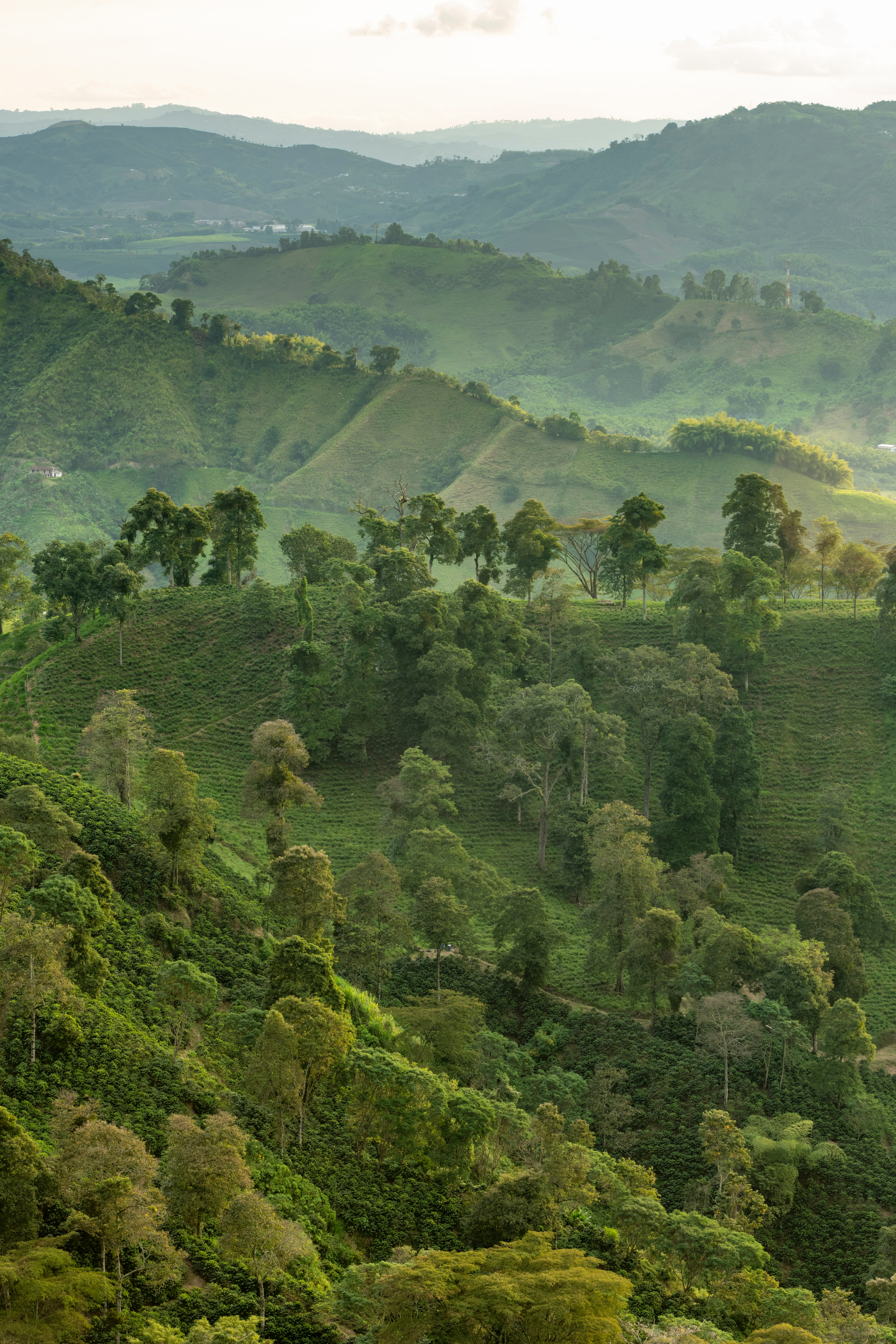Julius Meinl
Coffee expertise from bean to cup
Premium coffee starts with tropical sun and volcanic soil in the coffee growing regions 23°N – 25°S of the Equator. After harvesting, coffee is processed, sorted and then transported for blending, roasting and packing. The journey involves many delicate stages which demand experience, skill and quality control.

Coffee sourcing
Julius Meinl sources its green coffee mainly from the country of origin, directly from coffee farmers and cooperatives with whom we have long-standing relationships with.
We also source from international trading houses in Europe, America and Japan. Our teams have relationships with many of these for decades, based on mutual trust and fairness.
At Julius Meinl, we pay careful attention to ensuring the quality of our coffees.
We have quality controls in place at every stage of the production chain to guarantee consistently high quality. Our green coffees undergo strict quality control steps after they are delivered to the roastery. Once the coffee beans are released after the first check, they are roasted and a further quality control is carried out. Each individual bean is checked electronically, and each roasted lot is checked directly by our quality control and tasting panel using modern technology.
Quality control
Coffee blending
Creating new blends requires experience, creativity and skill. This is also needed for the reproduction of existing coffee blends, because popular and much-loved tastes must be replicated over and over again — despite the changing harvests and weather.
Roasting is an art, with a dash of science. It’s a skill that takes years of experience to master.
Julius Meinl I started the first roastery in Europe over 160 years ago, using a micro-batch roaster. His know-how and passion have been passed on from generation to generation within the Meinl family.
Our headquarters in Julius Meinl-Gasse, Vienna, host a roasting plant that’s been specialising in Viennese roasting since 1912. Our coffee studio develops our premium blends, special blends and many single origins, as well as specialty coffees.
In 2005, we added a state-of-the-art roasting plant in Vicenza (Italy) to fulfill all the coffee needs of our business clients and coffee lovers around the world.
The roasting process in both Vienna and Vicenza is computerised with state-of-the-art technology. A roasting master monitors everything to guarantee the utmost quality of our roasts.
Roasting process
Roasting coffee
The degree of roasting is important for the optimal preparation of the coffee.
Light roast
Creates a rich aroma, more flavour, higher acidity and sweetness, but less body. Great for filter coffee.
Medium roast
Brings out more aromas from the roasting process. The beans become more caramelised, gets a more yellow to brown sweetness, are less acidic and more balanced, with a soft but pleasant bitterness. This roast is suitable for typical Viennese coffee recipes based on espresso and filter coffee.
Dark roast
Leads to a bitter, strongly caramelised and more intense taste, with a strong body and low acidity. It is suitable for espresso recipes.
Roasted coffee, whether in beans or ground, is a highly sensitive product. To protect our precious coffee from oxygen, odour, humidity, heat and light, Julius Meinl packs it carefully.
Our coffee is vacuum-packed or sealed into bags with a one-way valve, so that air (O2) won’t get to the coffee, while any roast gases (CO2) can escape, before the pack starts to leak. That way, it keeps its quality while it’s on its way to you.
Packaging coffee
Brewing coffee
Bringing out the optimum taste from the beans not only takes a good roast, but also a precise grind size, temperature and quality of the water and brew method.
While our green coffee buyers, quality control and production team bring you the highest standards, it’s then up to you! To achieve the perfect taste, take care of your final preparation and brew method. For the most delicious results, let our coffee consultants inspire you.
At Julius Meinl, we live and breathe coffee. With over 160 years of experience, we are happy to share this knowledge with you.
You and your team can enjoy trainings in coffee preparation, grinder setting, milk frothing, latte art and how to create coffee-based drinks. Come along to our Coffee Academy in Vienna or to our training centres in our subsidiaries abroad and dive deep into our expertise.
Barista Training
Preparation
The perfect espresso
For a perfect espresso, you have to get the very best out of the beans. Take care of these parameters:
- Water temperature of 89-93°C.
- Water quality (3-6° dh for total hardness and 2-4°dh carbonate hardness)
- Amount of ground coffee (7 to 10 grams per portion according to SCA recommendations)
- Amount of espresso (25-35 ml volume including crema per portion of espresso)
- Time of extraction (ideally 20-30 seconds)
- Tamping weight (around 15 to 20 kg; depending on grinding level & amount of ground coffee)
The perfect milk foam
To prepare the perfect milk foam, focus on the basics:
- Use a chilled metal pitcher with a narrow, straight spout
- Use fresh cold milk (4°C)
- The higher the protein in the milk, the faster it will gain structure (milk with approx. 3.3 – 3.6% protein)
- Use your hand to feel the temperature on the side of the pitcher while heating
- Do not overheat it (between 60-65°C is ideal) or you will lose structure and texture
- Use a metal pitcher with the matching size: Small = 1 cup, Medium = 2 cups, Large = 3-4 cups
Ready to take your business to the next level?
Unlock growth opportunities. Connect with our Sales Manager for a tailored offer!
Contact us